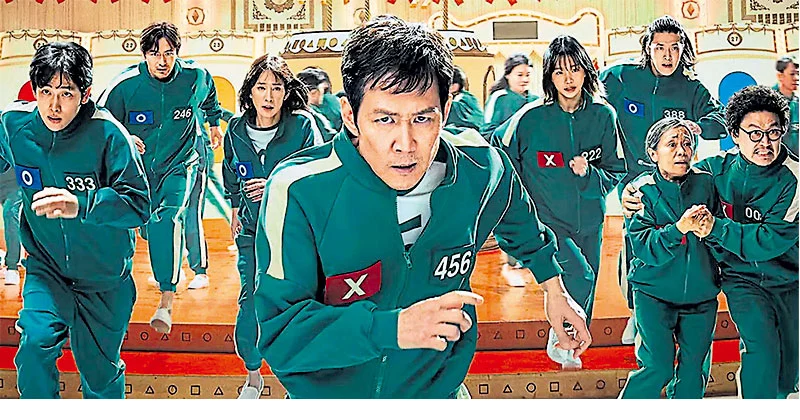
Two days ago, I saw on social media that Squid Game 2 was released. I was thrilled because when the first season came out, it deeply shocked me, and I strongly resonated with the values the director sought to convey. This weekend, I spent an entire day binge-watching all seven episodes of the second season.
Overall, perhaps due to high expectations, the second season did not provide as strong a sensory impact as the first. There are a couple of aspects that I believe may be criticized: first, much of the plot is predictable and lacks novelty; second, the protagonist's overly saintly behavior feels somewhat naïve and lacks deep contemplation. Nonetheless, I still think it is an excellent series that aligns well with the current state of human society, exposing the essence of human nature and the dilemmas we face collectively.
After thousands of years of feudal autocratic rule, human society has gradually transitioned to democratic and law-based systems over the past few centuries. However, even democracy has its inherent limitations. In Squid Game 2, unlike the first season, players can vote at the end of each round to decide whether to proceed with the next game. This inevitably leads to the interests of a minority being sacrificed, their fate hijacked by the majority, forcing them to participate in a shared game—whether they are inside or outside the game. Today, the crude and simplistic principle of majority rule appears to be the locally optimal solution. As one viewer comment pointed out, such democracy is merely "tyranny of the majority over the minority." To that, I would say, this is how human society has always progressed. The early settlers in America committed massacres and confined Native Americans—was that not tyranny? These settlers were the founders of democratic systems. Without such tyranny, many wouldn't even have the right to vote today. If we trace everything back to its roots, every individual bears original sin. Democracy is neither noble nor perfect. It is merely a process, a ritual, and a reflection of the people’s right to information and choice. We cannot demand both process and outcome. Human nature is greedy, but things rarely go as planned.
That said, I still believe democracy is the best solution for now. If democracy is tyranny by the majority over the minority, then autocracy is tyranny by the minority over the majority. I’ve said before that the essence of human society is social Darwinism; the instinct to revere the strong is inherent to human nature. When faced with survival issues, majority rule will always be the right decision, even if it seems foolish or leads humanity toward an unimaginable future. The drawbacks of autocracy need no excessive emphasis. Simply put, absolute power inevitably leads to absolute corruption. Unchecked power, relying solely on so-called human self-discipline, cannot withstand the tests of human nature and will only bring more chaos and disorder. Trusting a small group to decide the future for the majority defies logic. Human rights should be inherent and inviolable, not a "gift" granted by anyone. Furthermore, absolute power fosters worship of authority, pursuit of power, competition, and inhumane exploitation, all of which harm the broader public.
However, even this form of democracy cannot guarantee the correctness of outcomes because the game itself is orchestrated by a minority. By this, I mean that, like the creators of the Squid Game—the government—these few individuals introduce a voting mechanism under the guise of democracy, but their true intent is to manipulate the masses for the entertainment of a select few wealthy elites. Regardless of whether this game continues, there will always be a next game and more greedy participants. They will perish in these games, their organs sold to the rich. This mirrors the rising waves of anti-government sentiment and the growing influence of far-right movements today. The increasing adoption of Bitcoin, Trump’s re-election bid, and other events all signify that the world is on the brink of significant change.
We must acknowledge our limitations—the constraints of physical space, finite resources, and insufficient understanding—all of which prevent us from creating an ideal world akin to the "Infinite Tsukuyomi." Ensuring the survival and continuation of humanity should be the ultimate goal of societal development. That’s why I argue that social Darwinism is fundamental to human existence; survival of the fittest is an inevitable outcome. Every individual has their own desires, makes choices based on their cognition, and gets swept along by the group. Conversely, a single individual’s simple decision might trigger a collective tsunami, akin to the butterfly effect. We are all trapped within this four-dimensional spacetime, awaiting a savior or striving to break free from these chains, only to discover after decades of effort that we are still left empty-handed.
In this game, there are no winners. We will ultimately leave this world—a world we hate and cherish—with our regrets.